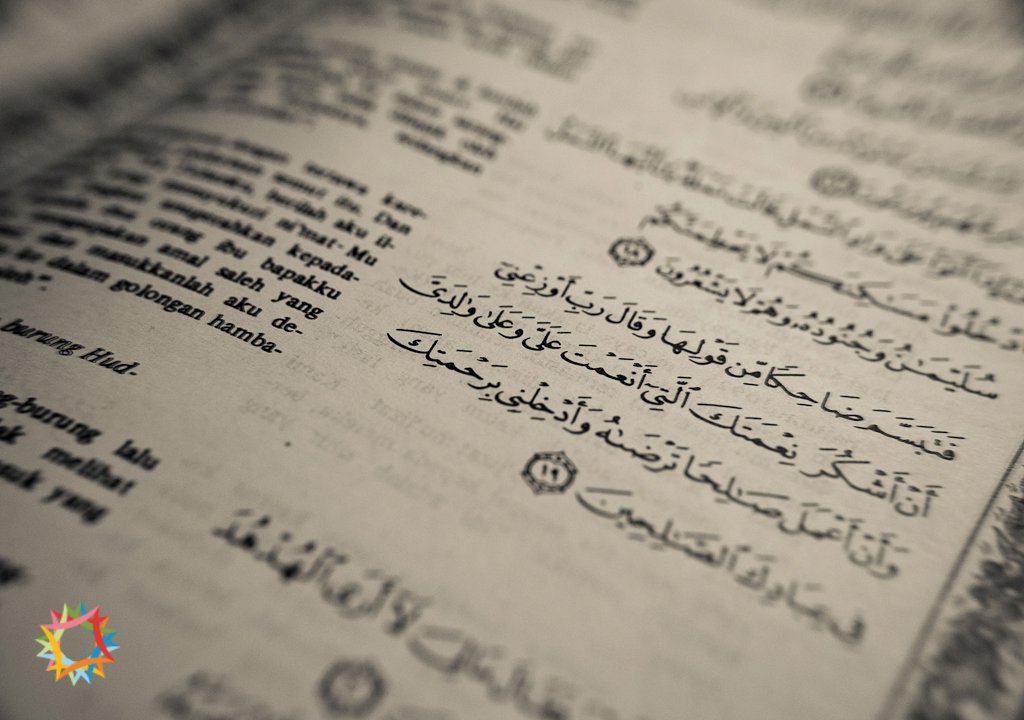It would be hoped that the Muslim mind would have some natural reservations when it comes to believing in falsehoods and superstitions, since the Quran establishes for us an approach to knowledge founded on factual information and evidence.
Allah says: “Say: Bring your proof, if you are truthful.” [Surah al-Baqarah: 111]
A Muslim believes in empirical evidence and in the knowledge gained through accurate observation and experimentation. A Muslim believes in reason and the conclusions the rational mind arrives at when free from the influence of personal desires and vested interests. A Muslim believes also in the truth of Divine Revelation.
Therefore, proof as a Muslim sees it is either empirical, rational, or – in matters of the unseen – scriptural.
This is clear from Allah’s words:
“Allah brings you forth from the wombs of your mothers knowing nothing, and He provides you with hearing, sight, and a heart, that perhaps you might be thankful.” [Surah al-Nahl: 78]
In this verse, Allah defines the sources of knowledge that can bring a person forth from the snares of ignorance.
Allah says: “And pursue not that of which you have no knowledge; for every act of hearing, or of seeing, or of the heart, will be enquired into.” [Surah al-Isra’: 36]
This verse prohibits us following that which is not supported by evidence and defines for us the sources of evidence.
By way of our hearing, we learn about revelation. By way of our sight, we acquire empirical knowledge. By way of our hearts, we are able to reason and make determinations.
By employing this methodology, the Muslims of old were able to emerge from the age of ignorance that they had been living in and become the vanguard of history, leading civilization forward.
They did not suffer from any conflict between rational knowledge and spiritual belief. Theirs was a perfect harmony between the two which brought about a full realization of their human potential.
This is in stark contrast to the pitiful state that Muslims are in today. Muslims are practically cut off from the empirical sciences, which have witnessed startling transformations and discoveries at a rate unprecedented in history.
Muslims societies are plagued with fables and superstitions that stifle their intellectual output and that bring about nothing but confusion. For some, the distinction between fables and superstitions on the one hand and revealed knowledge on the other has become obscured. Ready acceptance of strange and unnatural claims is seen as a natural extension of our belief in the unseen. Some people are eager to accept the flimsiest of claims and the most unsubstantiated of reports. Beneficial and sound knowledge, on the other hand, is met by some people with suspicion and stiff resistance.
Fables and strange tales spread around, traveling at the speed of light. Indeed, the speed with which rumors and fables spread through society might become a new figure of speech to indicate fantastic speed. Sheikh Muhammad Rashîd Ridâ wrote something once about the visionary bequest of Ahmad, the bearer of the Kaaba’s keys, foretelling the end of the world. Thereafter, Sheikh `Abd al-`Azîz b. Bâz wrote a specific response to this fable, though some people were surprised that he saw it worth his effort to refute such a ridiculous tale. Alas, we see the tale in its various guises reappear year after year.
Modern technology has allowed such stories to spread and circulate faster than ever. The Internet, satellite broadcasts, cell phones, and other advancements in communication have exposed to us how weak Muslims are in sorting and verifying information and how easy they are willing to absorb ideas that are contrary to both the teachings of Islam and to good sense. They have shown us the simple-mindedness and gullibility of a wide section of the population.
How often to reformers have to waste time combating false reports that spread like viruses, lethal and insidious, unchecked by any immunity.
Religious people are often the victims of myths about saints, the Mahdi, and the Hour. Sick people are susceptible to instantaneous diagnoses about magic curses, with cures that are often ridiculous and contrary to Islamic teachings. Many wives are plagued by superstitions involving curses, Jinn, magic charms, and the interpretation of dreams.
People seeking quick wealth are often taken in by the tempting promises of mediums who claim that with the assistance of Jinn or other people, they can help uncover for them buried treasure.
The general public seems not to have the patience to try and understand things or to acquire accurate knowledge. They are not sufficiently prepared for critical thinking. They are attracted to the new and strange. A person might sit in on a lecture or hear a sermon and remember nothing that was said except for something that was strange and unusual. The same can be said for reading periodicals. Some people have no interest except in those articles that have the least benefit or value, but that provide them with strange and attention-getting anecdotes for conversation.
However, Allah directs us as follows:
“Those who hear advice and follow the best thereof, such are those whom Allah guides, and such are people of understanding.” [Surah al-Zumar: 18]
It never ceases to amaze how an erudite scholar or scientist who is able to employ his mind to great effect within his field of secular study can at the same time you find him in another setting with his head reverently bowed down, awaiting the arrival of Khidr or the appearance of one of the Companions or prophets who is to participate in their gathering. It leaves us to wonder how such good sense can reside in the same mind with such foolish superstition.
Does a Muslim’s faith in the unseen – in matters that cannot be subjected to empirical scrutiny – give him license to discard sense and discretion in what he accepts to be true?
When superstition to run rampant in people’s lives, they dissipates their mental powers, making them incapable of critical thinking. Superstitions blacken the image of Islam.
Superstitions take away people’s confidence in themselves and their own abilities. It is that confidence which is so vital to the pursuit of knowledge, to inventiveness, and to excellence.
Noble, healthy civilizations have no respect for superstitions. We must make it a priority to reform our approaches to education, to developing critical thinking skills. No one who is concerned about the future of Muslim society can fail to see the importance of doing so. We should not allow our problems and circumstances to distract us from this. Indeed, only in this way will we be able to develop a strong basis to meet the challenges that confront us.
By : Sheikh Salman al-Oadah
 navedz.com a muslim's Quest for the truth
navedz.com a muslim's Quest for the truth









